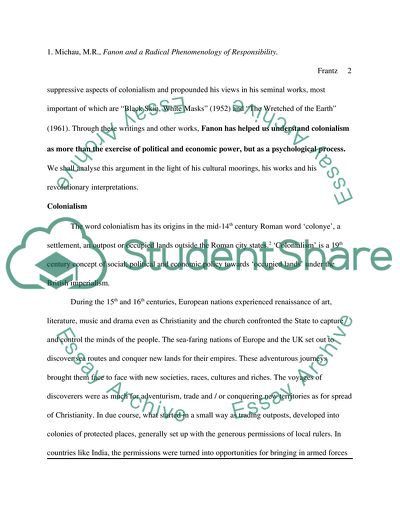Cite this document
(Suppressive Aspects of Colonialism Term Paper Example | Topics and Well Written Essays - 2250 words, n.d.)
Suppressive Aspects of Colonialism Term Paper Example | Topics and Well Written Essays - 2250 words. Retrieved from https://studentshare.org/history/1536869-post-coloniale-theorygender
Suppressive Aspects of Colonialism Term Paper Example | Topics and Well Written Essays - 2250 words. Retrieved from https://studentshare.org/history/1536869-post-coloniale-theorygender
(Suppressive Aspects of Colonialism Term Paper Example | Topics and Well Written Essays - 2250 Words)
Suppressive Aspects of Colonialism Term Paper Example | Topics and Well Written Essays - 2250 Words. https://studentshare.org/history/1536869-post-coloniale-theorygender.
Suppressive Aspects of Colonialism Term Paper Example | Topics and Well Written Essays - 2250 Words. https://studentshare.org/history/1536869-post-coloniale-theorygender.
“Suppressive Aspects of Colonialism Term Paper Example | Topics and Well Written Essays - 2250 Words”. https://studentshare.org/history/1536869-post-coloniale-theorygender.


